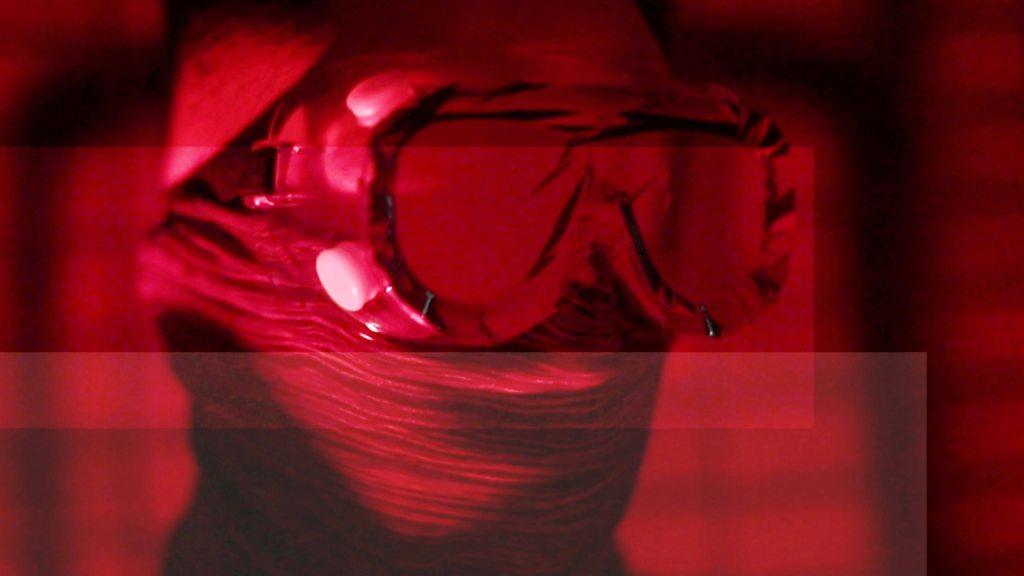Hong Kong: First person jailed under security law given nine years
- Published
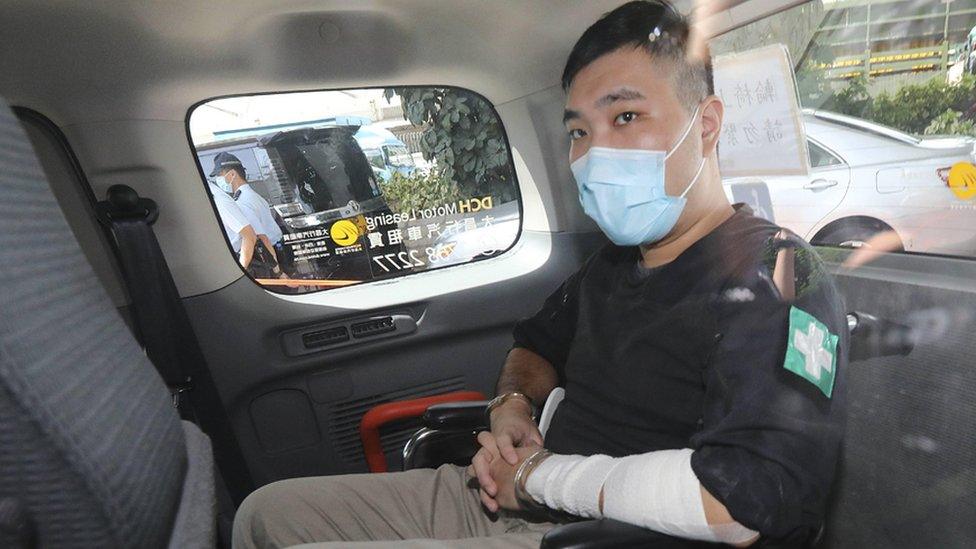
Tong Ying-kit was found guilty of inciting secession and terrorism
A Hong Kong man has been sentenced to nine years in prison after he rode a motorbike into police officers while flying a flag with a protest slogan.
Tong Ying-kit, whose flag bore the phrase "Liberate Hong Kong, revolution of our times", was earlier found guilty of inciting secession and terrorism.
He was the first person to be charged under Hong Kong's controversial national security law.
Friday's verdict has set the tone for how future cases might be interpreted.
More than 100 people have been arrested since the law came into force in 2020.
Critics say it reduces Hong Kong's autonomy and makes it easier to punish activists. But Beijing insists that the law is needed to bring stability to the city.
"We consider that this overall term should sufficiently reflect the defendant's culpability in the two offences and the abhorrence of society, at the same time, achieving the deterrent effect required," the judges who presided over the case said in a written judgement, according to Reuters.
Tong's conviction for secession was because of the slogan on his flag, with police adding that he was guilty of terrorist activities as his actions were a "deliberate challenge against the police".
Why is the protest slogan so sensitive?
Part of Tong's 15-day trial focused on the meaning of the "Liberate Hong Kong, revolution of our times" slogan, which was popular during pro-democracy protests.
The prosecution argued that the phrase literally called for Hong Kong's independence from the mainland, while the defence said its meaning was more ambiguous.
In the end the judge ruled that the phrase was capable of inciting others to commit "secession" and found Tong guilty.
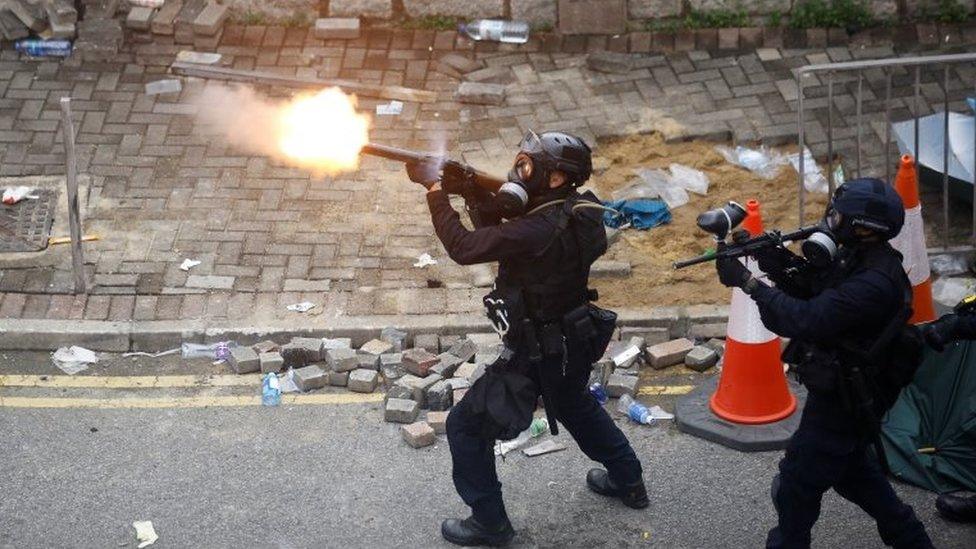
Hong Kong police fire tear gas at a protest in 2019
Hong Kong human rights lawyer Mark Daly told the BBC that he felt the sentence was "unreasonably long", as dangerous driving offences usually result in jail sentences of only a few years in Hong Kong.
The "massive mark-up" to nine years was because of the political slogan, he said. "The casualty here is freedom of expression."
But Andrew Powner, managing partner of Hong Kong law firm, Haldanes, felt the sentence was within guidelines for the national security law, which carries a maximum penalty of life imprisonment for grave offences.
The fact that Tong got nine years showed the judges felt his offence was on a "lesser scale" since it did not result in serious injuries, but was still "an affront to law and order in Hong Kong", he told the BBC.

'Hang in there!'
Grace Tsoi, BBC News, from the court
Dozens of people were present in court to hear the sentencing. Tong, dressed in a navy suit, made a heart shape with his fingers to his family from the dock.
The judge said that although Tong - who was the main breadwinner of his family - was "previously of good character", it was not enough to mitigate the "serious offences".
When the sentencing was read out, Tong remained expressionless, but his family was in tears,
While being led out of the dock, he shouted: "You should hang in there!" to his family.
At least a dozen police officers were stationed at a nearby shopping centre, where a crowd was waiting for Tong's prison van to emerge.

Why is the national security law controversial?
A former British colony, Hong Kong was handed back to China in 1997 but under the "one country, two systems" principle.
This was supposed to guarantee certain freedoms for the territory - including freedom of assembly and speech, an independent judiciary and some democratic rights - which mainland China does not have.
These freedoms are enshrined in Hong Kong's mini-constitution, the Basic Law, which was meant to last until 2047.
But in June last year, Beijing passed the national security law - which lawyers and legal experts said would fundamentally change the territory's legal system.
Trials can be held in secret and without a jury. The law also allows for judges to be handpicked by Hong Kong's chief executive, who is directly answerable to Beijing.
Amnesty International's Asia-Pacific regional director Yamini Mishra said Tong's sentencing showed the law was "not merely a tool to instil terror into government critics... it is a weapon that will be used to incarcerate them".
Additional reporting by Tessa Wong.
From protests to 'patriots': Why China is bent on crushing Hong Kong dissent
- Published31 July 2021
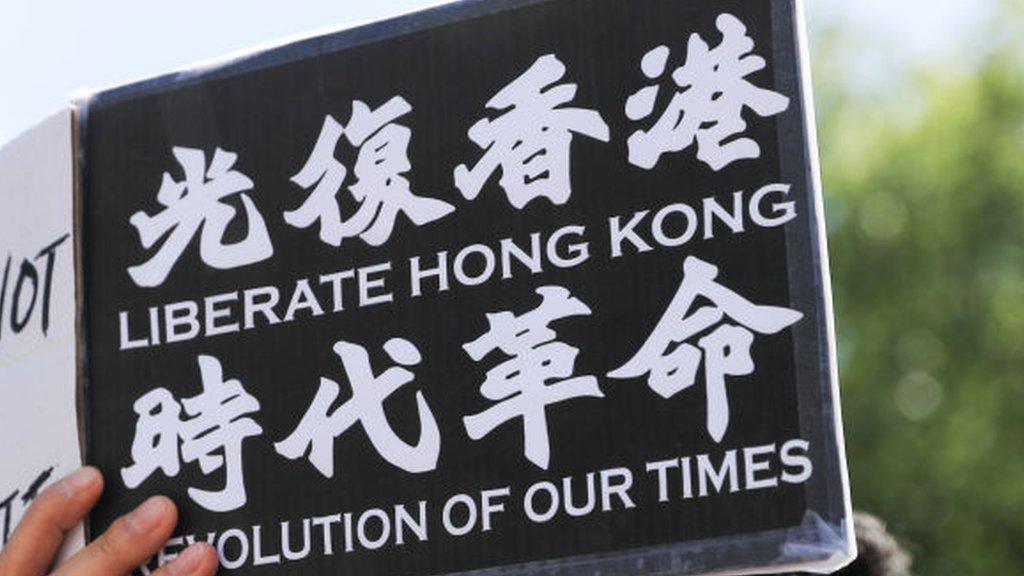
- Published27 July 2021
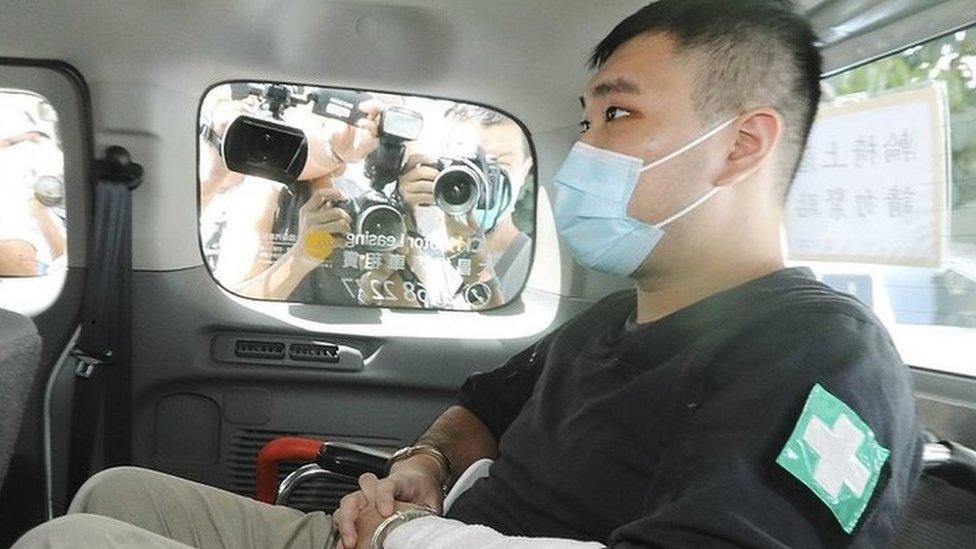
- Published26 May 2021
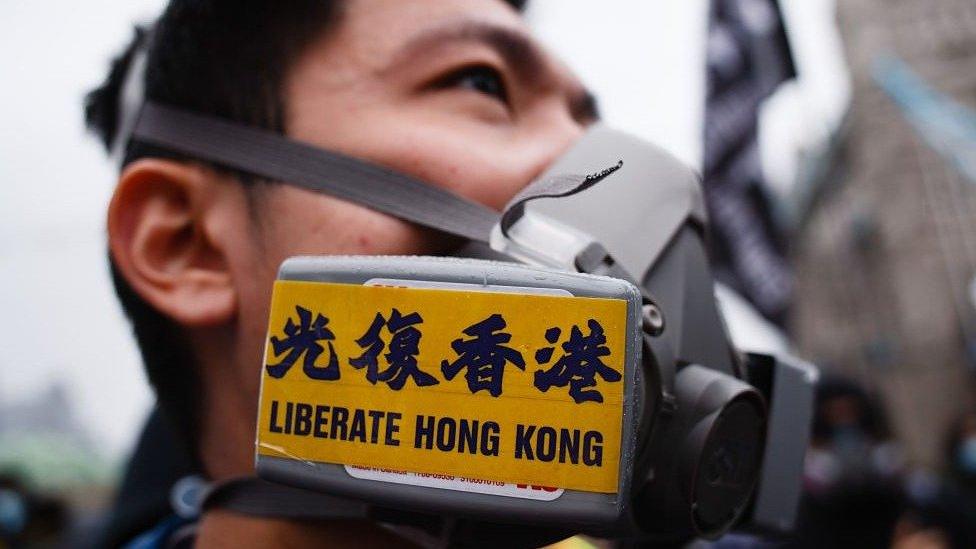
- Published30 June 2021

- Published19 March 2024
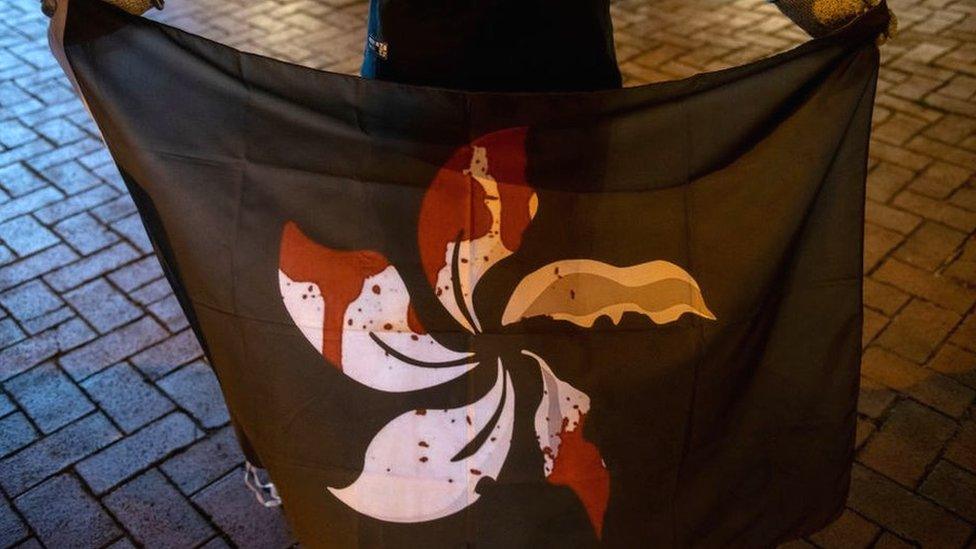
- Published30 January 2021
